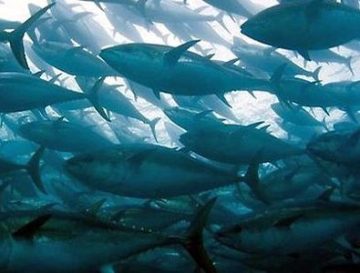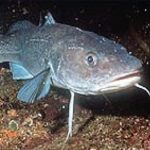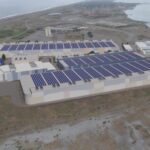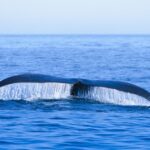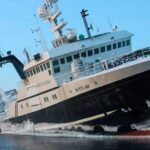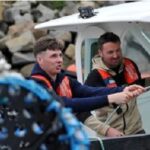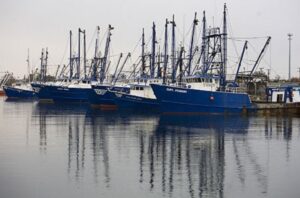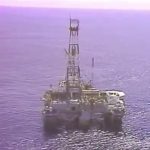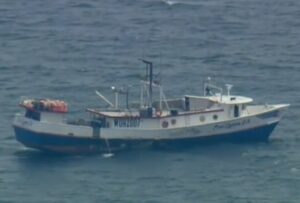Tag Archives: Trump administration
Congress Picks Sides on Trump Plan to Expand Offshore Drilling
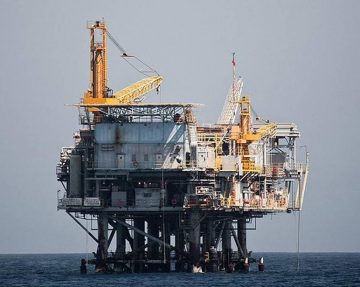 President Donald Trump’s plan to expand offshore oil drilling spurred dueling letters from members of Congress last week, 118 of whom say the plan is critical for U.S. energy security, while 69 others doubt it — plus nearly 18,000 letters of public comment, most of them opposing expanded drilling. Only 6 percent of the U.S. Outer Continental Shelf is available for leasing to oil and gas drillers from 2017 to 2022, under a drilling plan completed in the final days of President Barack Obama’s presidency. The shelf is 1.7 billion acres of submerged federal land from 3 nautical miles off the coastline, state-regulated waters, to 200 nautical miles out. click here to read the story 11:06
President Donald Trump’s plan to expand offshore oil drilling spurred dueling letters from members of Congress last week, 118 of whom say the plan is critical for U.S. energy security, while 69 others doubt it — plus nearly 18,000 letters of public comment, most of them opposing expanded drilling. Only 6 percent of the U.S. Outer Continental Shelf is available for leasing to oil and gas drillers from 2017 to 2022, under a drilling plan completed in the final days of President Barack Obama’s presidency. The shelf is 1.7 billion acres of submerged federal land from 3 nautical miles off the coastline, state-regulated waters, to 200 nautical miles out. click here to read the story 11:06
Christie rebukes Trump Administration over Atlantic offshore drilling plan
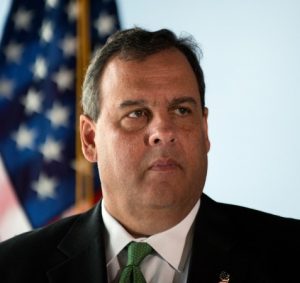 The Christie administration Wednesday issued a rebuke to President Donald Trump’s bid to open Atlantic Ocean waters to offshore drilling. In formal comments filed with the federal government, Gov. Chris Christie reaffirmed his opposition to any industrialization of the New Jersey coast that could affect the state’s natural resources, coastal communities or economy. It’s a rare case of policy agreement between environmental groups and Christie. New Jersey officials have long opposed drilling in the Atlantic because any spills could put New Jersey’s estimated $700 billion in coastal properties at risk. The state’s $45 billion Shore-based tourism industry and its commercial fishing industry, which generates $8 billion annually and supports about 50,000 jobs, could also be impacted by a spill. click here to read the story 09:20
The Christie administration Wednesday issued a rebuke to President Donald Trump’s bid to open Atlantic Ocean waters to offshore drilling. In formal comments filed with the federal government, Gov. Chris Christie reaffirmed his opposition to any industrialization of the New Jersey coast that could affect the state’s natural resources, coastal communities or economy. It’s a rare case of policy agreement between environmental groups and Christie. New Jersey officials have long opposed drilling in the Atlantic because any spills could put New Jersey’s estimated $700 billion in coastal properties at risk. The state’s $45 billion Shore-based tourism industry and its commercial fishing industry, which generates $8 billion annually and supports about 50,000 jobs, could also be impacted by a spill. click here to read the story 09:20
Trump Admin Won’t List Non-Endangered Tuna As An Endangered Species
The Trump administration declined a petition to list the Pacific bluefin tuna as “endangered” Tuesday after the Department of Commerce (DOC) found that the fish was not facing any significant threat of extinction. A petition from the Center of Biological Diversity to list the fish under the Endangered Species Act (ESA) triggered the Commerce Department’s review. The review began under former President Barack Obama, and lasted for 12 months before the DOC’s National Marine Fisheries Service (NMFS) issued its findings, according to the notice published in the Federal Register. The Center for Biological Diversity claimed the tuna was at risk of extinction, based on findings by the International Union for Conservation of Nature (IUCN). click here to read the story 20:01
Time is running out to protect the Atlantic coast
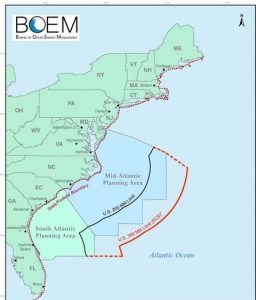 President Trump has proclaimed that his administration is seeking “American energy dominance.” The reality is we’re already there. The United States produces more natural gas and oil than any other nation. We do import about 25 percent of our oil needs mostly from Canada and Mexico. However, that’s only because we export about 1 million gallons a week of the type of domestically produced oil we don’t want. The U.S. is beholding to no other country for our energy security. If these facts come as a surprise to you, then you are ripe for being deceived by those who want to use airgun blasting to explore for oil and gas off the Atlantic Coast. The petroleum industry and its allies are trying to convince you that current technology and procedures for testing for offshore oil and gas deposits are safe. click here to read the story 09:13
President Trump has proclaimed that his administration is seeking “American energy dominance.” The reality is we’re already there. The United States produces more natural gas and oil than any other nation. We do import about 25 percent of our oil needs mostly from Canada and Mexico. However, that’s only because we export about 1 million gallons a week of the type of domestically produced oil we don’t want. The U.S. is beholding to no other country for our energy security. If these facts come as a surprise to you, then you are ripe for being deceived by those who want to use airgun blasting to explore for oil and gas off the Atlantic Coast. The petroleum industry and its allies are trying to convince you that current technology and procedures for testing for offshore oil and gas deposits are safe. click here to read the story 09:13
Trump administration steps in on fishing limits, and the implications could ripple
 “The commission is deeply concerned about the near-term impact on our ability to end overfishing on the summer flounder stock as well as the longer-term ability for the commission to effectively conserve numerous other Atlantic coastal shared resources,” Douglas Grout, the commission’s chair, said in a statement. “New Jersey makes a compelling argument that the measures it implemented this year, despite increasing catch above the harvest target, will likely reduce total summer flounder mortality in New Jersey waters to a level consistent with the overall conservation objective,” Chris Oliver, assistant administrator of fisheries at NOAA, wrote the commission in a letter on behalf of Ross. The move infuriated commissioners and fishing officials throughout the area, as well as the region’s NOAA officials. “Ross was brilliant in his decision,” said Jim Donofrio, executive director of the Recreational Fishing Alliance in New Jersey, which represents thousands of recreational fishermen across the country. “The Trump administration has challenged a broken fishery management system in this country, and I applaud them for doing it.” click here to read the story 10:10
“The commission is deeply concerned about the near-term impact on our ability to end overfishing on the summer flounder stock as well as the longer-term ability for the commission to effectively conserve numerous other Atlantic coastal shared resources,” Douglas Grout, the commission’s chair, said in a statement. “New Jersey makes a compelling argument that the measures it implemented this year, despite increasing catch above the harvest target, will likely reduce total summer flounder mortality in New Jersey waters to a level consistent with the overall conservation objective,” Chris Oliver, assistant administrator of fisheries at NOAA, wrote the commission in a letter on behalf of Ross. The move infuriated commissioners and fishing officials throughout the area, as well as the region’s NOAA officials. “Ross was brilliant in his decision,” said Jim Donofrio, executive director of the Recreational Fishing Alliance in New Jersey, which represents thousands of recreational fishermen across the country. “The Trump administration has challenged a broken fishery management system in this country, and I applaud them for doing it.” click here to read the story 10:10
Environmental groups suing Trump administration for extending red snapper season
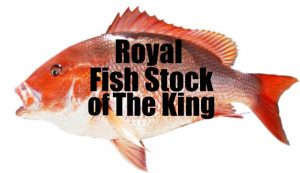 Two environmental groups are suing the Trump administration for stretching the red snapper season in the Gulf of Mexico. The federal government said the economic benefit from allowing weekend fishing this summer by recreational anglers in federal waters outweighs the harm to the red snapper species, which is still recovering from disastrous overfishing. Gulf state officials had lobbied for and praised the change, but the lawsuit says the decision violated several laws by ignoring scientific assessments, promoting overfishing, and failing to follow required procedures. It was filed Monday for the Ocean Conservancy and the Environmental Defense Fund. click here to read the story 13:13
Two environmental groups are suing the Trump administration for stretching the red snapper season in the Gulf of Mexico. The federal government said the economic benefit from allowing weekend fishing this summer by recreational anglers in federal waters outweighs the harm to the red snapper species, which is still recovering from disastrous overfishing. Gulf state officials had lobbied for and praised the change, but the lawsuit says the decision violated several laws by ignoring scientific assessments, promoting overfishing, and failing to follow required procedures. It was filed Monday for the Ocean Conservancy and the Environmental Defense Fund. click here to read the story 13:13
Time is running out to protect the Atlantic coast from Seismic Testing for oil exploration
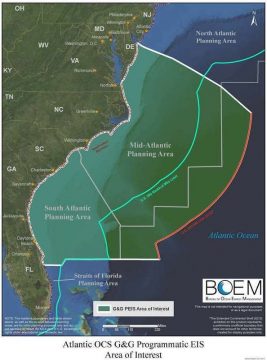 President Trump recently proclaimed that his administration is seeking “American energy dominance.” The reality is we’re already there. The United States produces more natural gas and oil than any other nation. We do import about 25% of our oil needs mostly from Canada and Mexico. However, that’s only because we export about one million gallons a week of the type of domestically produced oil we don’t want. The U.S. is beholding to no other country for our energy security.,,, The government estimates that up to 138,000 whales and dolphins could be injured or harassed if seismic airgun blasting was allowed in the Atlantic.,,, The government doesn’t even try to estimate the number of fish and invertebrates killed or harassed due to seismic airgun blasting. Ironically, in spite of its name the federal agency that approves applications for seismic testing, the National Marine Fisheries Service, requires absolutely no procedures to reduce the destructive impact of airguns on fish and invertebrates like squid. click here to read the op-ed 08:15
President Trump recently proclaimed that his administration is seeking “American energy dominance.” The reality is we’re already there. The United States produces more natural gas and oil than any other nation. We do import about 25% of our oil needs mostly from Canada and Mexico. However, that’s only because we export about one million gallons a week of the type of domestically produced oil we don’t want. The U.S. is beholding to no other country for our energy security.,,, The government estimates that up to 138,000 whales and dolphins could be injured or harassed if seismic airgun blasting was allowed in the Atlantic.,,, The government doesn’t even try to estimate the number of fish and invertebrates killed or harassed due to seismic airgun blasting. Ironically, in spite of its name the federal agency that approves applications for seismic testing, the National Marine Fisheries Service, requires absolutely no procedures to reduce the destructive impact of airguns on fish and invertebrates like squid. click here to read the op-ed 08:15
Interior secretary set to visit Boston as enviros launch marine monument campaign
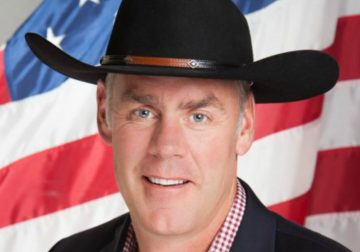 When Interior Secretary Ryan Zinke visits the Boston area on Friday, environmentalists plan to greet him by rallying for the preservation of national monuments that are under review by the Trump administration. The former Montana congressman has an 11 a.m. press event at a Legal Sea Foods location, according to his office. The Bay State visit could also afford the interior secretary a chance to meet with the state’s top Republican, Gov. Charlie Baker, although nothing has been announced. The fishing industry opposed President Barack Obama’s 2016 designation of the Northeast Canyons and Seamounts Marine National Monument on a roughly 4,900 square-mile area south of Cape Cod. According to a Zinke press aide, the secretary on Friday will meet with a U.S. Fish and Wildlife Service officials and officials from the New England Aquarium about marine wildlife around the monument. The secretary will then attend a roundtable meeting with lobstermen and fishermen about the impact of the monument designation on their industry. click here to read the story 18:36
When Interior Secretary Ryan Zinke visits the Boston area on Friday, environmentalists plan to greet him by rallying for the preservation of national monuments that are under review by the Trump administration. The former Montana congressman has an 11 a.m. press event at a Legal Sea Foods location, according to his office. The Bay State visit could also afford the interior secretary a chance to meet with the state’s top Republican, Gov. Charlie Baker, although nothing has been announced. The fishing industry opposed President Barack Obama’s 2016 designation of the Northeast Canyons and Seamounts Marine National Monument on a roughly 4,900 square-mile area south of Cape Cod. According to a Zinke press aide, the secretary on Friday will meet with a U.S. Fish and Wildlife Service officials and officials from the New England Aquarium about marine wildlife around the monument. The secretary will then attend a roundtable meeting with lobstermen and fishermen about the impact of the monument designation on their industry. click here to read the story 18:36
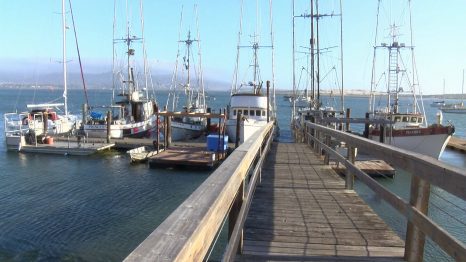
Local fishermen praise decision to cancel new protection for endangered animals
The new rule would have allowed for suspending swordfish fishermen for two entire fishing seasons if too many endangered animals were getting caught in their nets. After 35 years of fishing out of Morro Bay, Jeremiah O’Brien is breathing a sigh of relief for the industry. “We’ve got 110 permits on the West Coast and under 24 being used,” said O’Brien, who is also vice president of the Morro Bay Commercial Fishermen’s Association. Advocates say taking away the regulation hurts dwindling communities of endangered species, but O’Brien says fisherman already avoid catching endangered species at all costs. “The last thing we want is anything in the world but swordfish,” said O’Brien. The veteran fisherman says in the swordfish industry, they’re required to have observers on board with them, a vessel monitoring system, net limitations and strict off-limits areas in the Pacific Ocean. click here to read the story 12:40
Monument review includes Northeast Canyons and Seamounts, Papahahanoukuakea National Marine Monument’s
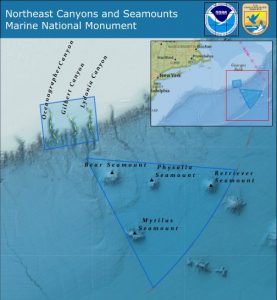 President Donald Trump’s call to review 27 national monuments established by three former presidents,,, Interior Secretary Ryan Zinke made his first recommendation Monday: Proposing a reduced size for the Bears Ears National Monument in Utah. He is set to issue a final report in late August for all the monuments. A closer look at five of the monuments that are being re-examined: Northeast Canyons and Seamounts National Monument, The designation closed the area to commercial fishermen, who go there primarily for lobster, red crab, squid, whiting, butterfish, swordfish and tuna. A coalition of commercial fishing groups filed a lawsuit in March to overturn the designation. They argued the creation of the monument would bring economic distress to fishermen and their families. Papahahanoukuakea National Marine Monument,The decision to expand the monument was the subject of fierce debate within Hawaii, with both sides invoking Native Hawaiian culture to argue why it should or shouldn’t be expanded. click here to read the story 08:30
President Donald Trump’s call to review 27 national monuments established by three former presidents,,, Interior Secretary Ryan Zinke made his first recommendation Monday: Proposing a reduced size for the Bears Ears National Monument in Utah. He is set to issue a final report in late August for all the monuments. A closer look at five of the monuments that are being re-examined: Northeast Canyons and Seamounts National Monument, The designation closed the area to commercial fishermen, who go there primarily for lobster, red crab, squid, whiting, butterfish, swordfish and tuna. A coalition of commercial fishing groups filed a lawsuit in March to overturn the designation. They argued the creation of the monument would bring economic distress to fishermen and their families. Papahahanoukuakea National Marine Monument,The decision to expand the monument was the subject of fierce debate within Hawaii, with both sides invoking Native Hawaiian culture to argue why it should or shouldn’t be expanded. click here to read the story 08:30
NOAA sets table for seismic testing offshore, including off South Carolina
 The Trump administration took a big step Monday toward permitting seismic testing for the presence of oil and natural gas in the offshore Atlantic, issuing the rules for how the tests take place. The tests would provide data sold to drilling companies to locate where to drill test wells. The move had been expected after President Donald Trump in April ordered a review of the Obama administration’s closings and lease denials of potential new offshore drilling sites.,, “Why would the government even think about allowing the filthy, accident-prone oil industry to proceed with this dangerous procedure that so greatly affects the same wildlife we’re all trying to protect through restrictive fishing regulations?” asked Rick Baumann, the owner of Murrells Inlet Seafood. click here to read the story 21:14
The Trump administration took a big step Monday toward permitting seismic testing for the presence of oil and natural gas in the offshore Atlantic, issuing the rules for how the tests take place. The tests would provide data sold to drilling companies to locate where to drill test wells. The move had been expected after President Donald Trump in April ordered a review of the Obama administration’s closings and lease denials of potential new offshore drilling sites.,, “Why would the government even think about allowing the filthy, accident-prone oil industry to proceed with this dangerous procedure that so greatly affects the same wildlife we’re all trying to protect through restrictive fishing regulations?” asked Rick Baumann, the owner of Murrells Inlet Seafood. click here to read the story 21:14
Northeast Canyons and Seamounts Marine National Monument under review, Beaton hoping for modifications
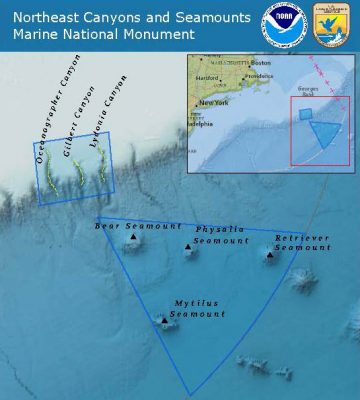 The state’s top environmental official hopes the Trump administration modifies President Barack Obama’s 2016 designation of a marine monument area off the Massachusetts coast, which is on the Trump administration’s list of areas under review. Environmental protection activists last year applauded Obama’s decision, made under powers granted through the Antiquities Act, to create the Northeast Canyons and Seamounts Marine National Monument covering a more than 4,900 square mile area southeast of Cape Cod. The designation came with strict limits on fishing that were greeted with pushback from port communities and some elected officials, including Gov. Charlie Baker, whose administration knocked an alleged lack of public process, potential negative impacts on commercial fishing, and conflicts with existing marine fisheries planning processes. click here to read the story 12:11
The state’s top environmental official hopes the Trump administration modifies President Barack Obama’s 2016 designation of a marine monument area off the Massachusetts coast, which is on the Trump administration’s list of areas under review. Environmental protection activists last year applauded Obama’s decision, made under powers granted through the Antiquities Act, to create the Northeast Canyons and Seamounts Marine National Monument covering a more than 4,900 square mile area southeast of Cape Cod. The designation came with strict limits on fishing that were greeted with pushback from port communities and some elected officials, including Gov. Charlie Baker, whose administration knocked an alleged lack of public process, potential negative impacts on commercial fishing, and conflicts with existing marine fisheries planning processes. click here to read the story 12:11
Offshore exploration and drilling back on table for Georgia
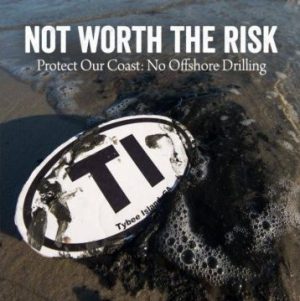 The Trump administration announced earlier this month that it is moving forward on seismic surveys in the Atlantic Ocean, the first step toward offshore drilling in a region where it has been blocked for decades. The Interior Department plans to review six applications by energy companies that were rejected in January by the Obama administration. Local and state environmental groups as well as many coastal municipalities oppose the surveys, saying loud sounds from seismic air guns could hurt marine life. Sen. David Perdue, R-Georgia, and Rep. Buddy Carter, R-Savannah, remain in favor of seismic testing and offshore drilling. “With a vibrant commercial fishery industry and the only known calving ground for endangered North Atlantic right whales just off our coast, Georgians oppose seismic testing for offshore oil exploration and the risks it poses to our state’s wildlife, wild places, and quality of life,” said Alice Keyes, vice president for coastal conservation at Coastal Georgia-based One Hundred Miles. Click here to read the story 19:19
The Trump administration announced earlier this month that it is moving forward on seismic surveys in the Atlantic Ocean, the first step toward offshore drilling in a region where it has been blocked for decades. The Interior Department plans to review six applications by energy companies that were rejected in January by the Obama administration. Local and state environmental groups as well as many coastal municipalities oppose the surveys, saying loud sounds from seismic air guns could hurt marine life. Sen. David Perdue, R-Georgia, and Rep. Buddy Carter, R-Savannah, remain in favor of seismic testing and offshore drilling. “With a vibrant commercial fishery industry and the only known calving ground for endangered North Atlantic right whales just off our coast, Georgians oppose seismic testing for offshore oil exploration and the risks it poses to our state’s wildlife, wild places, and quality of life,” said Alice Keyes, vice president for coastal conservation at Coastal Georgia-based One Hundred Miles. Click here to read the story 19:19
The Plight of ‘Fish Delight’
 It’s the kind of headline meant to grab the attention of the president: “Say Goodbye to the Filet-O-Fish.” The New York Times op-ed by Bren Smith, Sean Barrett, and Paul Greenberg warned that the proposed cuts to the National Oceanic and Atmospheric Administration had implications for the pollock, the fish used in McDonald’s Filet-O-Fish, which Trump has lovingly called the “fish delight.”,,, Smith, Barrett, and Greenberg contend that the Trump administration’s proposed 17 percent cut in funding for NOAA and its subsidiary, the National Marine Fisheries Service, will have an adverse impact not only on the president’s sandwich, but also the fishing industry. ” ,,, The Seafood Harvesters of America, which represents the interests of commercial fishing (lol!),,, click here to read the story 08:37
It’s the kind of headline meant to grab the attention of the president: “Say Goodbye to the Filet-O-Fish.” The New York Times op-ed by Bren Smith, Sean Barrett, and Paul Greenberg warned that the proposed cuts to the National Oceanic and Atmospheric Administration had implications for the pollock, the fish used in McDonald’s Filet-O-Fish, which Trump has lovingly called the “fish delight.”,,, Smith, Barrett, and Greenberg contend that the Trump administration’s proposed 17 percent cut in funding for NOAA and its subsidiary, the National Marine Fisheries Service, will have an adverse impact not only on the president’s sandwich, but also the fishing industry. ” ,,, The Seafood Harvesters of America, which represents the interests of commercial fishing (lol!),,, click here to read the story 08:37
Helping US Shrimpers, New Trump order might hit India’s shrimp exports
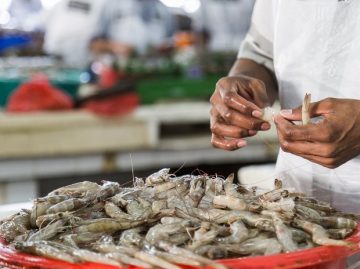 The $5.5-billion Indian seafood export market might face new restrictions in America. The new Donald Trump government, in an executive order, is set to enforce countervailing duties strictly on countries held to be dumping goods. America is the major importer of Indian seafood, with a share of 28.5 per cent in 2015-16, for 153,695 tonnes worth $1.3 billion. Frozen shrimp is the principal item of export to the US, with a share of 94 per cent in value terms. Another executive order directs their department of commerce and the Office of the US Trade representative to examine every form of trade abuse and non-reciprocal practice that contribute to the US’ large and persistent trade deficit, largest of any major nation in 2016 at $500 billion. Within 90 days, both these agencies are to give a comprehensive report to the President on the causes. “The US is the only country which is imposing an anti-dumping duty on Indian shrimp, to give level playing to its producers. click to continue reading the story 19:30
The $5.5-billion Indian seafood export market might face new restrictions in America. The new Donald Trump government, in an executive order, is set to enforce countervailing duties strictly on countries held to be dumping goods. America is the major importer of Indian seafood, with a share of 28.5 per cent in 2015-16, for 153,695 tonnes worth $1.3 billion. Frozen shrimp is the principal item of export to the US, with a share of 94 per cent in value terms. Another executive order directs their department of commerce and the Office of the US Trade representative to examine every form of trade abuse and non-reciprocal practice that contribute to the US’ large and persistent trade deficit, largest of any major nation in 2016 at $500 billion. Within 90 days, both these agencies are to give a comprehensive report to the President on the causes. “The US is the only country which is imposing an anti-dumping duty on Indian shrimp, to give level playing to its producers. click to continue reading the story 19:30
Interior Secretary Ryan Zinke – Keep Offshore Oil Drilling and Seismic Testing Away From the Atlantic Coast
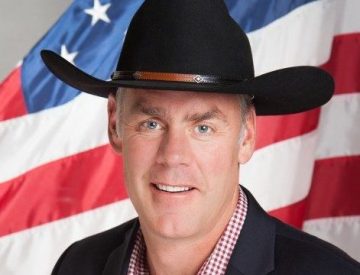 On April 6 Interior Secretary Ryan Zinke told the National Ocean Industries Association that an executive order was forthcoming that would start the process of rewriting the five-year plan for the Outer Continental Shelf Oil and Gas Leasing Program. The next day an op-ed in Morning Consult by Carl Bentzel began Big Oil’s public relations campaign to paint oil/gas exploration and drilling off the Atlantic coast as safe and oil-spill free given new technology and safeguards. Mr. Bentzel argues that the “first steps should be responsible assessment of oil and gas resources in our South Atlantic Ocean.” So let’s start with seismic airgun blasting that is the essence of this exploration. While proponents of seismic testing say the process is safe for marine life and will provide information for a public debate, neither point is factual. click here to read the op-ed 09:17
On April 6 Interior Secretary Ryan Zinke told the National Ocean Industries Association that an executive order was forthcoming that would start the process of rewriting the five-year plan for the Outer Continental Shelf Oil and Gas Leasing Program. The next day an op-ed in Morning Consult by Carl Bentzel began Big Oil’s public relations campaign to paint oil/gas exploration and drilling off the Atlantic coast as safe and oil-spill free given new technology and safeguards. Mr. Bentzel argues that the “first steps should be responsible assessment of oil and gas resources in our South Atlantic Ocean.” So let’s start with seismic airgun blasting that is the essence of this exploration. While proponents of seismic testing say the process is safe for marine life and will provide information for a public debate, neither point is factual. click here to read the op-ed 09:17
Gov. Paul LePage: US should take on EU-Canada lobster tariff plan
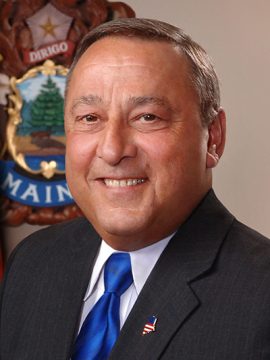 Maine’s governor says the U.S. should challenge a European Union plan to lift tariffs on Canadian lobster. Gov. Paul LePage, a Republican, says the tariff deal would put Maine lobsters at a “significant disadvantage” to Canada. He made the comments during an appearance on WVOM-FM on Tuesday. American lobster wholesalers and retailers are concerned about the possibility of a tariff change, in part because the exchange rate already favors Canada. The EU imported more than $150 million in lobster from the U.S. last year. LePage says it’s time to go to Washington and “instill in them how serious this is.” He says he intends to use his connections with the Trump administration to push the issue. Link 09:17
Maine’s governor says the U.S. should challenge a European Union plan to lift tariffs on Canadian lobster. Gov. Paul LePage, a Republican, says the tariff deal would put Maine lobsters at a “significant disadvantage” to Canada. He made the comments during an appearance on WVOM-FM on Tuesday. American lobster wholesalers and retailers are concerned about the possibility of a tariff change, in part because the exchange rate already favors Canada. The EU imported more than $150 million in lobster from the U.S. last year. LePage says it’s time to go to Washington and “instill in them how serious this is.” He says he intends to use his connections with the Trump administration to push the issue. Link 09:17
White House budget head: Reported Coast Guard cuts ‘not accurate’
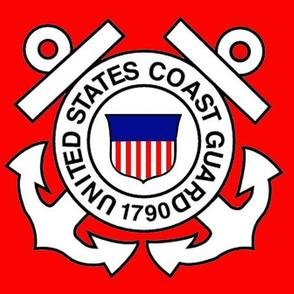 President Trump’s budget director is insisting that a report that $1.3 billion would be cut from the Coast Guard’s budget is inaccurate, although the administration’s first spending outline does not include the data to back up the claim. The budget blueprint released early Thursday details a $54 billion bump in defense spending and a 6.8 percent increase for the Department of Homeland Security, which the Coast Guard falls under. Nowhere in the budget, however, is a mention of Coast Guard spending, which was initially identified by the White House as a way to partially fund an illegal immigration crackdown and border security. Trump’s budget director, Mick Mulvaney, told reporters on Wednesday that the reported cuts are “not accurate.” He pointed to the overall increase for DHS in the outline, and said its secretary, John Kelly, is allowed to allocate the money as he sees fit. Read the story here 11:36
President Trump’s budget director is insisting that a report that $1.3 billion would be cut from the Coast Guard’s budget is inaccurate, although the administration’s first spending outline does not include the data to back up the claim. The budget blueprint released early Thursday details a $54 billion bump in defense spending and a 6.8 percent increase for the Department of Homeland Security, which the Coast Guard falls under. Nowhere in the budget, however, is a mention of Coast Guard spending, which was initially identified by the White House as a way to partially fund an illegal immigration crackdown and border security. Trump’s budget director, Mick Mulvaney, told reporters on Wednesday that the reported cuts are “not accurate.” He pointed to the overall increase for DHS in the outline, and said its secretary, John Kelly, is allowed to allocate the money as he sees fit. Read the story here 11:36
At NOAA – Trump team may emphasize climate science uncertainty
 The uncertainty surrounding climate research could be emphasized at the National Oceanic and Atmospheric Administration under the Trump Administration. The Trump Administration landing team at NOAA may focus on data used by the agency to formulate its climate research, calling into question the accuracy of temperature measurements that inform the public’s understanding of global warming, according to an official involved in preliminary talks. In particular, the team has discussed the ways that the instrumentation used in some NOAA temperature readings could be flawed and has raised the possibility of including a section on the NOAA online home page that would emphasize uncertainty.,, Sterling Burnett, a research fellow at the Heartland Institute, argued that the administration is not interested in stifling climate science so much as shifting research to other fields like short-term weather predictions and maintaining the health of commercial fishing stocks. He said scientists are going to have to get used to the idea of facing more scrutiny, particularly if they want to receive federal research grants, and predicted cuts to those grants as money is shifted to other fields he called more relevant to the economy. Read the article here 20:05
The uncertainty surrounding climate research could be emphasized at the National Oceanic and Atmospheric Administration under the Trump Administration. The Trump Administration landing team at NOAA may focus on data used by the agency to formulate its climate research, calling into question the accuracy of temperature measurements that inform the public’s understanding of global warming, according to an official involved in preliminary talks. In particular, the team has discussed the ways that the instrumentation used in some NOAA temperature readings could be flawed and has raised the possibility of including a section on the NOAA online home page that would emphasize uncertainty.,, Sterling Burnett, a research fellow at the Heartland Institute, argued that the administration is not interested in stifling climate science so much as shifting research to other fields like short-term weather predictions and maintaining the health of commercial fishing stocks. He said scientists are going to have to get used to the idea of facing more scrutiny, particularly if they want to receive federal research grants, and predicted cuts to those grants as money is shifted to other fields he called more relevant to the economy. Read the article here 20:05
Has the Trump administration already made fluke fishing great again?
 On Friday, January 20, just hours after the official transition of presidential power, the White House ordered an immediate freeze of pending regulations until they can be reviewed by the new Trump administration. In an inauguration day memo to federal departments and agencies, new White House Chief of Staff Reince Priebus said the freeze was designed to ensure that President Donald Trump’s appointees or designees “have the opportunity to review any new or pending regulations.” Sent to the current heads of all executive departments and federal agencies, the memo from Priebus applies to any regulations not yet sent for final publication in the Federal Register and asks federal agencies to not send any regulation to the Federal Register until reviewed by the Trump administration. President Trump has tabbed New York businessman Wilbur Ross as the next Secretary of Commerce, the cabinet head with ultimate authority over NOAA Fisheries. Read the article here 20:36
On Friday, January 20, just hours after the official transition of presidential power, the White House ordered an immediate freeze of pending regulations until they can be reviewed by the new Trump administration. In an inauguration day memo to federal departments and agencies, new White House Chief of Staff Reince Priebus said the freeze was designed to ensure that President Donald Trump’s appointees or designees “have the opportunity to review any new or pending regulations.” Sent to the current heads of all executive departments and federal agencies, the memo from Priebus applies to any regulations not yet sent for final publication in the Federal Register and asks federal agencies to not send any regulation to the Federal Register until reviewed by the Trump administration. President Trump has tabbed New York businessman Wilbur Ross as the next Secretary of Commerce, the cabinet head with ultimate authority over NOAA Fisheries. Read the article here 20:36
Trump’s NOAA Pick Says He Won’t Censor Global Warming Data
 The Trump administration won’t censor climate scientists or delete temperature data, nominee for Secretary of Commerce Wilbur Ross said during his confirmation hearing Wednesday. If confirmed, Ross will oversee the National Oceanic and Atmospheric Administration (NOAA), which has caused environmentalists to become terrified Trump and Ross will censor scientists or delete government data about global warming. They even tried create back-ups of NOAA temperature data to prevent this. Democratic Florida Sen. Bill Nelson asked Ross during the hearing if he would change existing policies to prevent NOAA scientists from sharing their opinions about global warming with the press or public, or suppress federal data about global warming. “I support the dissemination of valid information to the public,” Ross responded. “I don’t think valid information should be concealed, and in general I have great respect for the scientific quality of NOAA. Its my understanding that there are four Noble prize winners at NOAA, and that is certainly a measure of their expertise.” Read the rest here 17:10
The Trump administration won’t censor climate scientists or delete temperature data, nominee for Secretary of Commerce Wilbur Ross said during his confirmation hearing Wednesday. If confirmed, Ross will oversee the National Oceanic and Atmospheric Administration (NOAA), which has caused environmentalists to become terrified Trump and Ross will censor scientists or delete government data about global warming. They even tried create back-ups of NOAA temperature data to prevent this. Democratic Florida Sen. Bill Nelson asked Ross during the hearing if he would change existing policies to prevent NOAA scientists from sharing their opinions about global warming with the press or public, or suppress federal data about global warming. “I support the dissemination of valid information to the public,” Ross responded. “I don’t think valid information should be concealed, and in general I have great respect for the scientific quality of NOAA. Its my understanding that there are four Noble prize winners at NOAA, and that is certainly a measure of their expertise.” Read the rest here 17:10






